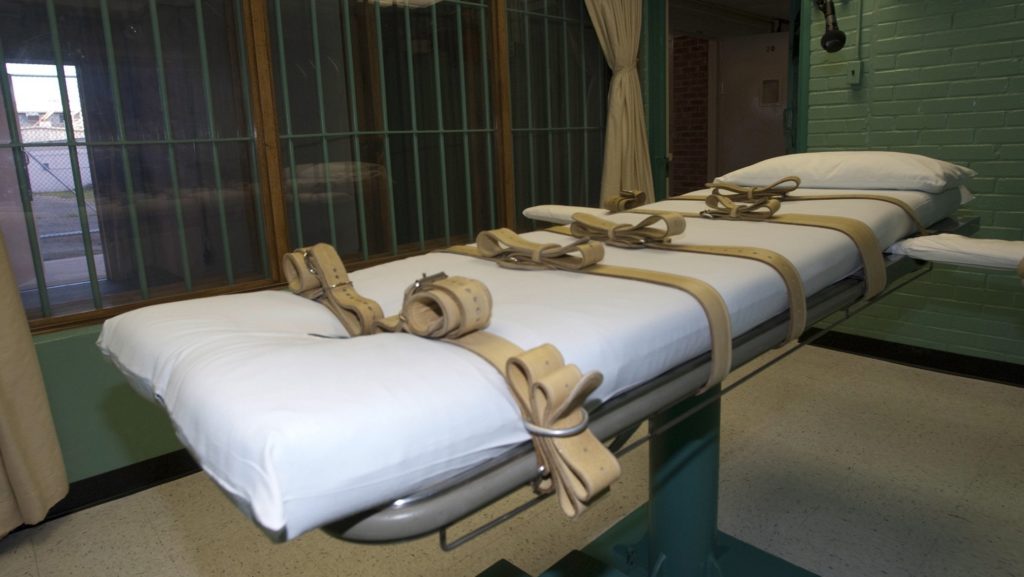Could there be anything more heinous than a government executing an innocent citizen? Whatever one thinks about the death penalty, I would hope all would agree that to take an innocent American’s life in such a calculated manner would be repellent.
On Sept. 24, however, the state of Missouri may have done exactly that. Marcellus Williams was executed for a 1998 murder despite serious questions about the veracity of two people who had testified against him. Despite the fact that his DNA was not found at the scene and that prosecutors had tainted evidence by not using gloves. Despite the fact that the prosecution may have been racially discriminatory during the selection of jurors. Despite the fact that the prosecutor’s office that had originally convicted him now believed him to be not guilty. Despite the fact that one governor in Missouri had ordered a review of the case, but that review was stopped by the current governor. And despite the fact that the family of the murdered woman did not want him executed.
Missouri elected officials made sure no one thought they were soft on crime. And for that, an innocent man may have been executed.
St. Louis Prosecuting Attorney Wesley Bell issued a statement shortly after the execution: “Marcellus Williams should be alive today. There were multiple points in the timeline when decisions could have been made that would have spared him the death penalty. If there is even the shadow of a doubt of innocence, the death penalty should never be an option.”
There are lots of reasons to oppose the death penalty. Gerald F. Uelmen, a trial lawyer, teacher, and law school dean, writing in the Journal of Catholic Legal Studies, identifies one. “It is morally wrong for the state to take the life of a criminal, unless the state has a flawless system of justice to reliably, fairly, and consistently determine who should and who should not be executed. I believe it is simply impossible for human beings to devise a flawless system of justice.”
Both race and class — the color of one’s skin and the financial resources one lacks — make it more likely the accused will end up on death row. This is one of many reasons why most states, and most civilized countries, no longer use the death penalty.
Unfortunately, we are experiencing a resurgence of executions, primarily in the South. Since the Supreme Court allowed executions to resume in 1976, 1,600 people and counting have been executed. In September alone there were five executions, one each in Missouri, South Carolina, Oklahoma, Alabama, and Texas. Besides Williams, one man was executed despite allegations of false testimony and another was executed despite Oklahoma’s pardon and parole board recommending clemency.
According to the Death Penalty Information Center, more than 200 people on death row have been exonerated since 1973.
A flawed system, a shadow of doubt, and still the executions mount.
This October we are celebrating “Respect Life Month.” It is a fitting time to remind ourselves that the Catholic Church has become ever more resolutely opposed to the death penalty over the last three papacies.
Because “the dignity of the person is not lost even after the commission” of a crime, more effective systems of detention are now available, and the protection of citizens is now possible “without definitely depriving the guilty of the possibility of redemption,” the Catechism of the Catholic Church now declares: “The death penalty is inadmissible because it is an attack on the inviolability and dignity of the person.” (2306).
Or as Mother Teresa put it more simply to a guard when she visited California’s death row: “Remember, what you do to these men, you do to God.”
But while juries are less and less likely to vote for the death penalty, politicians are another matter. Men and women who have been languishing on death row for decades as their cases undergo appeal are running out of options. And politicians are revisiting their death penalty positions as crime becomes an election year issue. This past summer, Indiana announced it would resume executions, claiming with absolutely no evidence that it would be an “effective deterrent for certain potential offenders.”
That a convicted person may in fact be innocent is not the only reason to oppose the death penalty. The inequalities and inconsistencies of our justice system, the extraordinary costs associated with death penalty cases, and the willingness to “deprive the guilty of the possibility of redemption” and repentance are also reasons.
This month, the Catholic Mobilizing Network, which is dedicated to ending use of the death penalty, will celebrate its 15th anniversary. Full disclosure: I am a CMN board member. Information about the death penalty and restorative justice are available on CMN’s website: www.catholicsmobilizing.org.
And even as the World Day Against the Death Penalty is celebrated Oct. 10, seven more executions are scheduled before year’s end. The killing continues.

